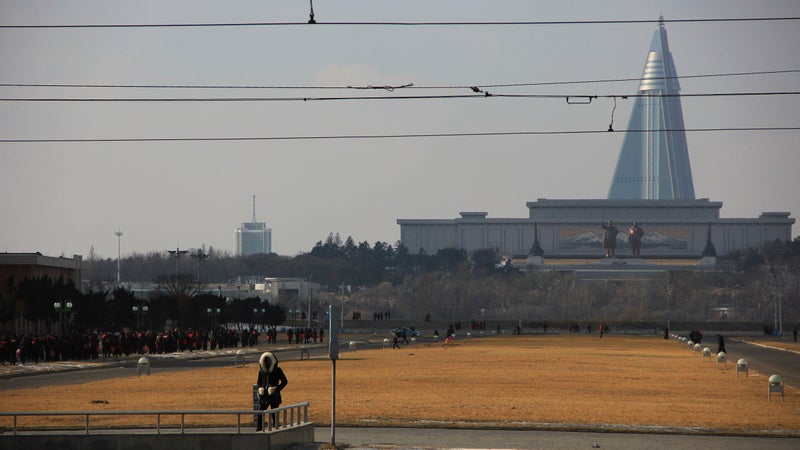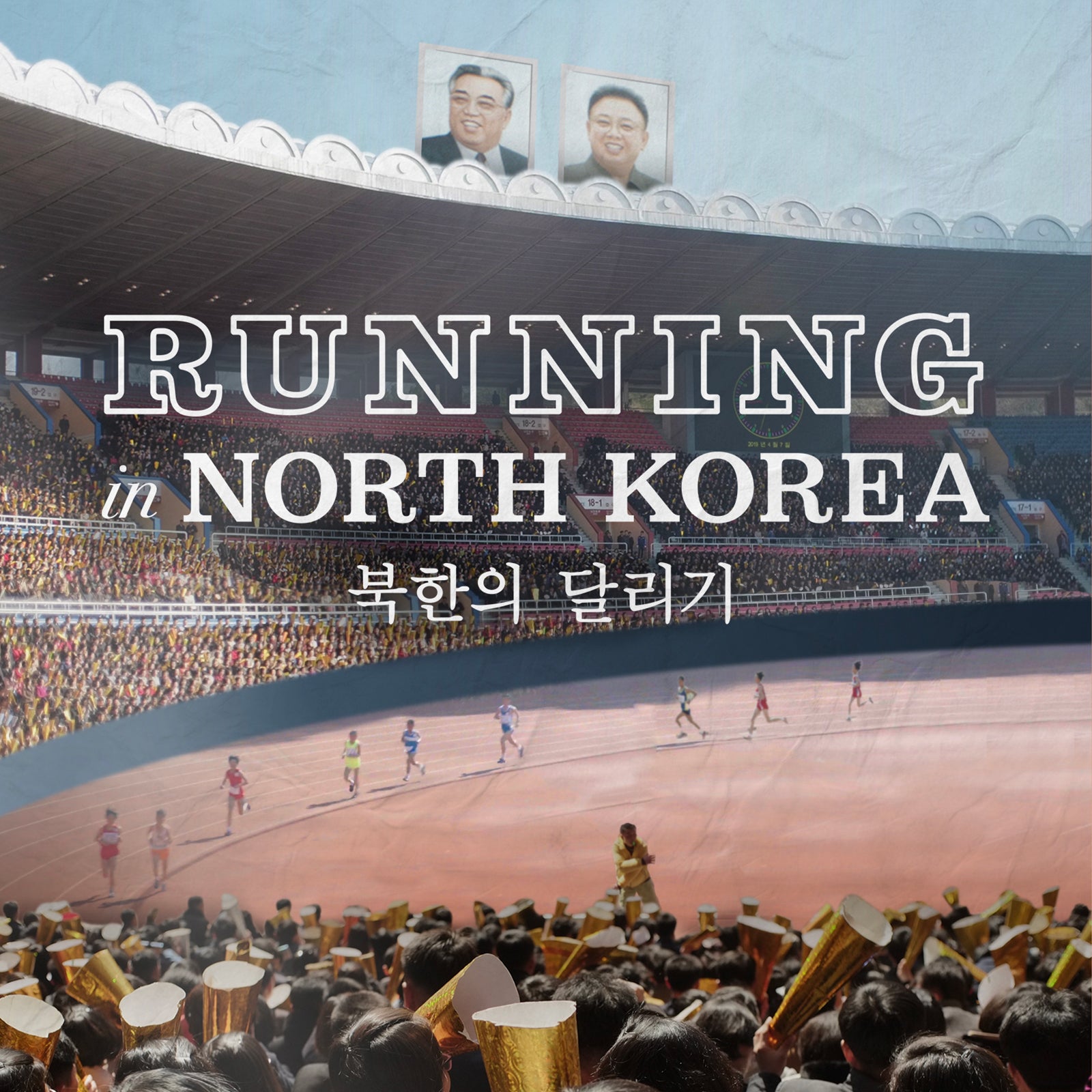On April 12, 2019, about╠ř50,000 people dressed in dark jackets packed Kim Il-sung Stadium in North KoreaÔÇÖs capital for . The sea of spectators clapped with short wooden planks in a well-rehearsed rhythm, and conductors at the front of the bleachers guided the crowd to raise gold cones distributed beforehand. Down on the field, coaches ordered the North Korean╠řmarathon athletes to ÔÇťstand up straightÔÇŁ during the flag-raising ceremony and╠řnot ÔÇťstare at foreigners.ÔÇŁ The race╠řis the only event in the country thatÔÇÖs open to foreign contestants, and it attracts some 1,000 runners from 58 countries in addition to its 600 North Korean participants.
Among the outside╠řentrants╠řwere╠ř, the╠řBritish snowboarder and two-time Olympian, and , a retired Olympic freestyle skier and X Games╠řmedalist from Switzerland.╠řÔÇťArriving in the stadium, it almost felt as if I was at the Olympic opening ceremony,ÔÇŁ Fuller says. She and Jaeger are subjects of , which premieres╠řon September 24 on the Olympic Channel and ╠řand╠řfollows the two athletes over the course of the week they spent in╠řPyongyang in the lead-up to╠řthe race.
The filmÔÇÖs director, , has worked on everything from a National Geographic television series about to╠řBear GryllsÔÇÖs survival show Man vs. Wild.╠řBut he had never encountered anything quite like filming in a country like this one. Before arriving, he researched other documentaries made in North Korea and talked to friends who had been there, but it was difficult to find much information about what to expect other than having╠řno cell service, being╠řchaperoned everywhere, and getting your hotel phone wiretapped.
Things went better than expected. As the film chronicles, the crew was granted unparalleled access to explore sports facilities and chat with the nationÔÇÖs╠řmost decorated athletes. Fuller and Jaeger met Olympic medalists and world champions in weight lifting, table tennis, gymnastics, and the marathon; all of them were handpicked at a very early age, after which they ate, lived, and breathed sports. Their coaches╠řinstilled in them╠řthe faith that their athletic prowess would one day bring praise and glory to the country. After winning global competitions, some North Korean athletes were gifted╠řluxury apartments and limousines, while╠řothers earned high political status,╠řbecoming delegates of the Supreme PeopleÔÇÖs Assembly, the countryÔÇÖs rubber-stamp legislative body. The Kim family praises╠řmedal winners, and╠řNorth Koreans treat those athletes like rock stars.

Fuller and JaegerÔÇÖs╠řtime in North Korea is predictably strange. During a warm-up run on the streets of Pyongyang, Fuller tries to interact with curious pedestrians, but a car is following her the whole time. Since Jaeger isnÔÇÖt allowed to go anywhere on her own, she completes her training in a labyrinth of corridors in the hotel where╠řshe is staying. A day before the marathon, while the crew is gobbling spicy tofu in the hotelÔÇÖs restaurant, the power╠řsuddenly cuts out; apparently,╠řtoo many foreigners (mostly Pyongyang Marathon participants)╠řwere using their digital devices, which╠řoverloaded the hotelÔÇÖs electrical system.
After being shepherded from place to place for six days, Fuller is finally set free╠řby the raceÔÇÖs╠řstarting gun. The marathonÔÇÖs course follows the Taedong River and passes everything from Kim Il-sung Square to residential neighborhoods. During the four and a half hours she takes to complete the race, Fuller at last╠řcan interact with the locals cheering them on. And so does Jaeger, who competed in the 10K race. ÔÇťThere are two parts in my head: one is telling me, ÔÇśHey, the things youÔÇÖve read about this country are not true,ÔÇÖÔÇŁ Jaeger says in the film. ÔÇťOn the other hand, IÔÇÖm seeing a lot of [miserable] things.ÔÇŁ
Ultimately, though, the film╠řshows that even in the most isolated and secretive places, sports can be a unifying language that humanizes and brings people together.


